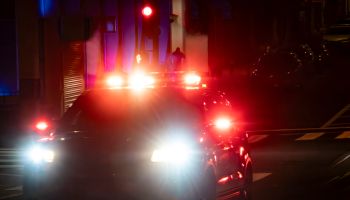50 years ago this week, Rev. Dr. Martin Luther King, Jr. and a host of others, including Congressman John Lewis then a young civil rights activist, led a march from Selma, Alabama to Montgomery, Alabama, the state capital, in a quest for voting rights. The group of marchers was stopped at the Edmund Pettus bridge and set upon by police with dogs and batons, which was broadcast around the world to the shock and disdain of the global community.
The march was know as ‘Bloody Sunday’ and is considered one of the defining moments of the civil rights movement. President Barack Obama, the nation’s first African-American president, will address that history in a speech from Selma, Alabama on Saturday. He spoke with the Tom Joyner Morning Show about the march’s legacy, the problems American still faces and what he hopes his daughters, Sasha, 16, and Malia, 13, who will accompany him along with First Lady Michelle Obama, will gain from their first visit to the historic city.
TOM JOYNER: Good morning, Mr. President.
PRESIDENT BARACK OBAMA: Good morning, Tom. How are you doing, man?
TOM: I’m doing good, and I’m ready for the celebration in Selma. I will be joining you tomorrow morning, Saturday morning, in Selma.
PRESIDENT OBAMA: Well, it’s going to be a magnificent celebration and I’m really looking forward not just to being there myself, but to having the chance to take Michelle and the girls down there. You know, Malia and Sasha haven’t been down there. And for them to be able to see this place where, you know, at a crossroads in our history, the kind of America that we all believe in was championed and ultimately vindicated. That’s a powerful thing.
SYBIL: How great is that? That is powerful.
TOM: It is.
PRESIDENT OBAMA: Yeah.
TOM: How old were you? This was 50 years ago.
PRESIDENT OBAMA: Yeah, I was three when this happened.
TOM: So when did you find out about Selma? And when did you realize its significance to our people?
PRESIDENT OBAMA: Well, I’ll tell you, it was really my mother when I was pretty young, six, seven, eight. You know, she would give me sort of children’s books about the civil rights movement. Or she played Mahalia Jackson songs. And just give me that sense of this great inheritance that we had. And that’s part of what, you know, I want to communicate to my girls but also to the country is, you know, this was a quintessentially American moment. America, at its best, is about its capacity for change. And not just denying problems, but taking them head on. And America at its best is also about ordinary people, citizens, we the people, making change. And there are very few examples in American history, or human history, where that basic notion of, you know, maids, and Pullman porters and, you know, young white priests traveling from Massachusetts, and rabbis and just, you know, people without high office or great wealth.
TOM: Right.
Read more of this story at http://blackamericaweb.com/2015/03/06/president-obama-talks-selma-50-ferguson-and-the-legacy-he-wants-to-leave-his-daughters/














